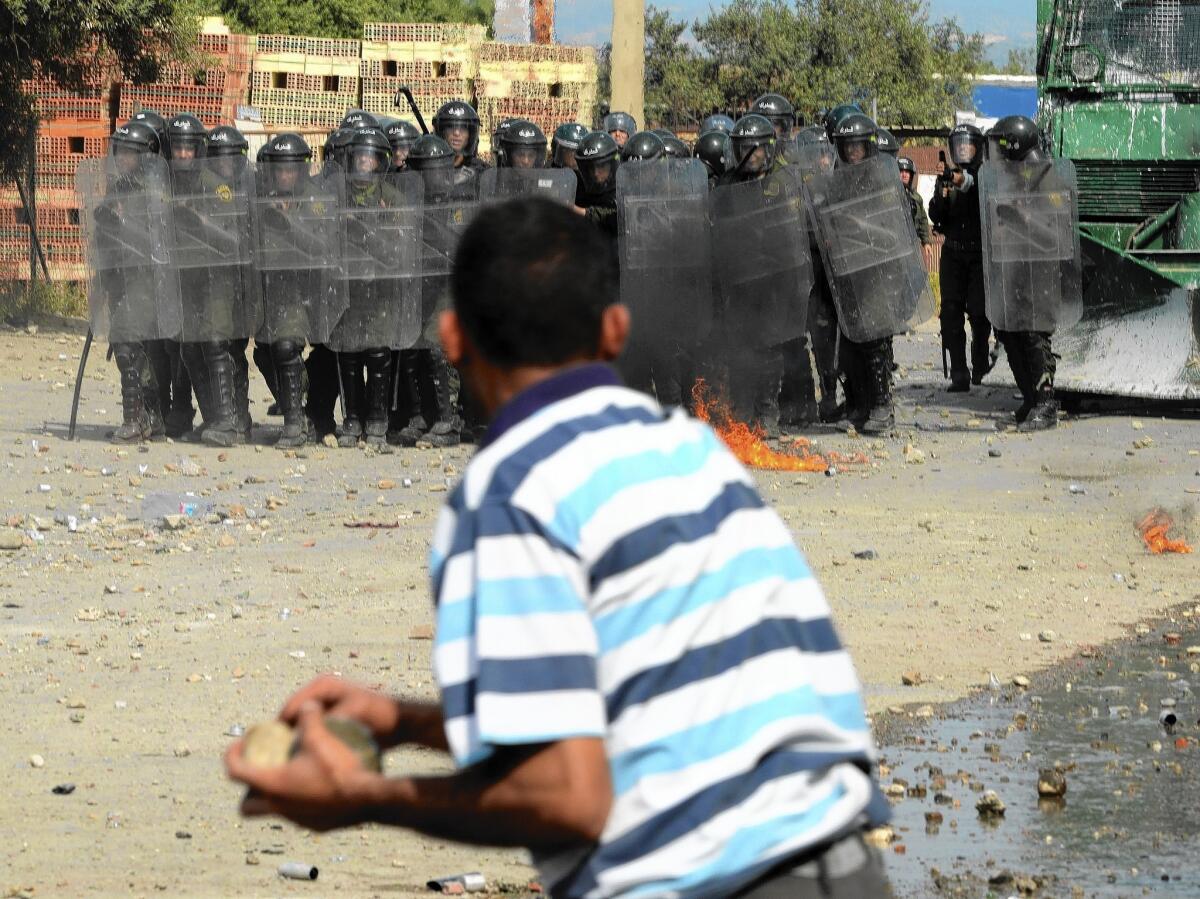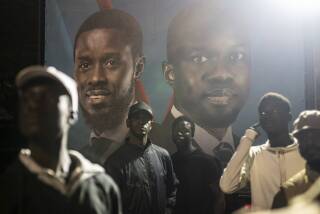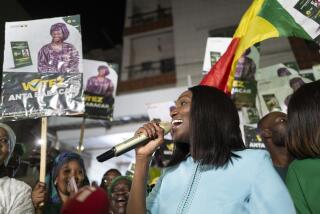Ailing Algerian leader Abdelaziz Bouteflika expected to win reelection

ALGIERS — Amid heavy security, Algerians went to the polls Thursday in a presidential election that the 77-year-old incumbent, Abdelaziz Bouteflika, was considered likely to win despite his obviously failing health.
The tumult of the “Arab Spring” uprisings across the region three years ago largely bypassed this energy-rich North African nation, still exhausted by a civil war in the 1990s. Bouteflika helped bring that conflict to an end.
Discontent with the high unemployment rate, a housing crunch and political stagnation expressed itself mainly in the form of an electoral boycott. Young voters dominate the 23-million-member electorate, but many stayed away or said they intended to cast a blank ballot.
“They will not keep me from speaking up, and this is my way to say ‘no,’” said a 29-year-old woman who wanted to be identified by only her first name, Amira. She cast a ballot but said she supported no one.
With Bouteflika nearly incapacitated, a fourth-term victory for him would maintain a status quo under which proxies and proteges already manage the business of governance. The president’s opponents deride him as “mummified.”
Swiftly suppressed preelection demonstrations against Bouteflika’s continued rule could be a sign of turmoil to come, particularly if foreign reserves begin to dwindle, oil prices take a predicted drop and badly needed economic reforms are not enacted.
The nascent opposition movement Barakat, or Enough, predicted that if Bouteflika is declared the winner, unrest is likely to erupt sooner or later.
“You can feel the tension everywhere,” said Meziane Abane, an Algerian journalist who helped found Barakat. “You may not see the police, but they have been ordered to be ready.”
The president, who suffered a stroke last year, did virtually no campaigning, has made almost no public appearances for a year and appeared dazed and unresponsive during a visit this month by Secretary of State John F. Kerry. In the run-up to the election, Bouteflika spent months abroad getting medical treatment.
Five rivals are challenging him and have pledged to raise an outcry if the vote appears fraudulent, a serious concern in every election since Bouteflika came to power in 1999.
A low turnout could also make it difficult for the Bouteflika camp to claim a popular mandate.
Special correspondent Addala reported from Algiers and Times staff writer King from Cairo.
More to Read
Start your day right
Sign up for Essential California for news, features and recommendations from the L.A. Times and beyond in your inbox six days a week.
You may occasionally receive promotional content from the Los Angeles Times.






